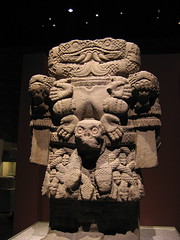A "Fair Trade" logo for academic research?
March 7, 2008, [MD]
It’s hard to take any anthropology courses without hearing about research ethics from professors eager to deal with anthropology’s colonial past, and before we went on our field works we also discussed quite a bit about research ethics. There are many aspects to this field, however many face the issue because they need to get “ethics approval” for any research on human subjects. They have to promise things like anonymity, informed consent and safety of source data. However, I believe that when working in developing countries especially, there are other issues that are also important.
I have come up with a few points that I would like to commit myself to, and which I think are important and decent in terms of doing research in developing countries.
- All research output should be published through open-access channels, whether open-access journals, or journals that allow self-archiving.
- All research output should be translated to a language commonly used in the language where research was conducted.
The purpose of these two points is to give access to your research for researchers in the country where you conducted the research. However, if the people you conducted research on are not comfortable reading academic papers, translating it might not be enough to give the research subjects access to your research.
- Convey the main findings of your research in a way that research subjects themselves can understand, whether through a written account in an appropriate language and vocabulary, through an oral presentation or otherwise.
I personally believe that in being accountable to the people we research, we are also more responsible in what we write. This is not meant as censorship, but if we write about rich and powerful, they will have access to what we have written afterwards anyway, so why be any less careful when we write about marginalized groups, then when we write about powerful groups?
As I mentioned, many researchers discuss research ethics, but I seldom see people commit to the points listed above. I was impressed however, by the answers given by Dr. Ritty A. Lukose during her job talk at OISE, when I asked her how she made sure that her research and scholarship also benefitted people in Kerala and India, where she does her research. She told me that she frequently publishes in Indian journals, teaches graduate students in Bangalore, runs workshops in India, etc. Thus in addition to the above-mentioned points, one should strive to
- Collaborate with researchers from developing countries as equal partners, taking into considerations their theories and analyses, and not just use them as research assistants.
- Contribute to training graduate students and young researchers in developing countries.
- Help researchers in developing countries get their work published.
- Contribute to scholarship from developing countries being made accessible online so that they can participate in the international scholarly discourse.
 The title of this blog post comes from the flippant idea I had this
morning in conversation with my flat mates that perhaps some kind of a
“Fair Research” designation should be developed, with a logo that could
be applied to research materials, certifying that they had followed a
certain number of practices. I realize that this would probably be very
inflexible, as researchers are continually re-evaluating what practices
are appropriate in any given situation. Yet, I would like to see a much
stronger movement to force people to consider these ideas.
The title of this blog post comes from the flippant idea I had this
morning in conversation with my flat mates that perhaps some kind of a
“Fair Research” designation should be developed, with a logo that could
be applied to research materials, certifying that they had followed a
certain number of practices. I realize that this would probably be very
inflexible, as researchers are continually re-evaluating what practices
are appropriate in any given situation. Yet, I would like to see a much
stronger movement to force people to consider these ideas.
Stian
Photo credits: volvidejapon, rosemanios
Stian Håklev March 7, 2008 Toronto, Canada comments powered by Disqus